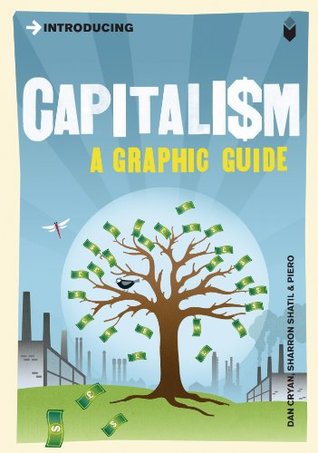More on this book
Community
Kindle Notes & Highlights
by
Dan Cryan
Read between
June 17 - July 14, 2018
Feudalism aims for stability, and this makes it diametrically opposed to capitalism with its search for ever-growing markets.
The first commercial banks appeared in the late 13th century in Italian towns like Siena. The word comes from banco – Italian for bench – since at first banking services were provided on benches at the town’s centre. But banking does not begin with the Italian merchants – its origins lie with the Knights Templar, an order of warrior monks founded in 1096 to ensure the safe passage of European pilgrims heading to Jerusalem in the aftermath of the First Crusade.
Amsterdam itself was the greatest trade city in Europe up to the Industrial Revolution, and was home to the first stock exchange and insurance company. The Netherlands is considered by many historians to be the first truly capitalist nation in the world.
The State of Nature Hobbes took this view of mankind and imagined a time when there was no effective government. He thought that without strong government “the wickedness of bad men also compels good men to have recourse, for their own protection, to the virtues of war, which are violence and fraud”. The result is that everyone battles with everyone else for every small advantage. It is, in effect, a war of all against all. Hobbes called this imagined pre-history the “state of nature”.
“Leviathan”. The relationship is supposed to be contractual – people trade their natural right to all things in exchange
The idea that people have natural rights to private property and to decide how and where they work became the bedrock of liberal capitalism. In liberal thought, if a person has a natural right to something, then no one, not even the state, can interfere with it.
Locke thought that a civil government should not wield absolute power. Instead, people should be free to replace any government that attempts to subject them to its absolute or arbitrary rule.
It is not from the benevolence of the butcher, the brewer, or the baker, that we expect our dinner, but from their regard to their own interest. We address ourselves, not to their humanity but to their self-love, and never talk to them of our own necessities but of their advantages.”
The invisible hand follows profit, and works less well at providing for needs where the route to making
Ricardo’s second principle is that labour is destined never to become more expensive. From the Labour Theory of Value it follows that all increases in productivity and profit principally happen because labour got cheaper.
workers can expect to get more money as society becomes more advanced, but only because more money is produced. As more of it is produced, it skews the balance of supply vs. demand and so causes inflation –
This will necessarily happen, according to Marx, because of the inner workings of capitalism.


